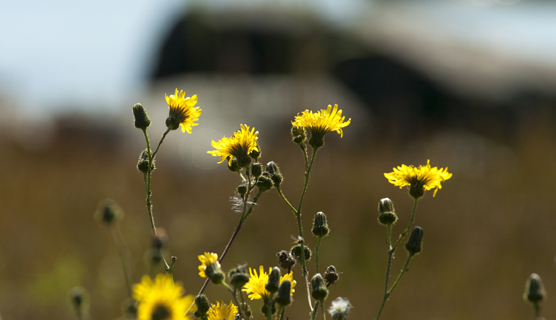
© Riku Lumiaro
The Finnish Environment Institute SYKE was successful in the September 2021 call of the Academy of Finland. The Academy grants 1.2 million euros to four SYKE projects that address many current topics in society. The chosen projects reflect the diversity of research and expertise in SYKE.
“SYKE’s new Academy funded projects represent the entire information value chain needed for sustainability transformation. Research is needed for improving our understanding of ecosystems, societies and their interaction”, says Eeva Primmer, the Research Director of SYKE.
The research projects address topics such as cycling of the greenhouse gas nitrous oxide, farmed animals in food systems as well as the relationship between water and people.
Leading Researcher Heli Saarikoski’s project looks into joint fact-finding as a knowledge co-production strategy in environmental disputes. “It is very exciting to continue the work we began in a previous project and delve into new interesting cases – there is no shortage of science-intensive disputes in the environmental field”, Saarikoski says.
Funded research projects
Postdoctoral Researcher Dana Hellemann: Benthic nitrous oxide cycling in a changing coastal sea (BENNO)
- Funding to SYKE: 265 244 €
Coastal sediments are important for the natural production and consumption of the greenhouse gas nitrous oxide (N2O). Dana Hellemann’s post doc project assesses whether the coastal Baltic Sea will become a source or sink of N2O in the future by using micro-sensors and functional gene expressions to disentangle the microbial processes contributing to N2O cycling. Data will be obtained from experiments and field observations and used to model future scenarios. The results will advance our understanding and the development of measures on coastal greenhouse gas emissions.
Leading Researcher Heli Saarikoski: Joint fact-finding as a knowledge co-production strategy in environmental disputes (JOINED)
A typical feature of complex environmental problems is that different groups disagree on the facts and their meaning. To address the conflicts constructively, it is important to bring all relevant actors around the same table to learn from each other and to build a shared knowledge base. A promising model for such knowledge co-production processes is joint fact-finding (JFF). This project will apply JFF to topical environmental conflicts in Finland. The first one focuses on cormorant-fishing interactions. The second one will address a science-intensive conflict that is relevant in the years 2023-2025. The project will also study the ways to integrate practice and place-based knowledge into knowledge co-production processes.
Research Professor Minna Kaljonen: Sustainable niche for farmed animals in food systems - deep leverage points for change (SustAnimalFood)
- Coordinated by the University of Helsinki, funding to SYKE: 299 999 €
The production and consumption of animal products has become a subject of heated and politicised debate. The arguments for and against livestock agriculture are conflicting. At best, farmed animals can occupy a multifaceted niche in sustainable food production and land use, and deliver multiple benefits such as recycling nutrients and maintaining biodiversity. However, animal husbandry has turned into a single most polluting part of agriculture. The project will scrutinize a sustainable niche for farmed animals. What of value have we gained and lost on the way? What possibly lies in the future? And what is our appetite for animals, both on our land and on our plates?
Senior Researcher Kati Pitkänen: Unfolding Sense of Water - care across boundaries (SensIs)
- Coordinated by Natural Resources Institute Finland, funding to SYKE: 224 552 €
Caring relationships with the environment emerge from a personal process based on sense of place – a perception of belonging to and acting as part of one’s own surroundings. This is the starting point of the Sense of Water project. Integrating science and art, the project engages different people and stakeholders to co-create the boundary concept of sense of water. Therewith, the personal place-bound narratives, literacies, and embodied actions translate to a collective care for water. This offers vast opportunities for improved wellbeing of humans and the rest of nature.
Further information
-
Eeva Primmer, Research Director, Finnish Environment Institute SYKE, firstname.lastname@syke.fi, Tel. 0295 251 521
-
Dana Hellemann, Postdoctoral Researcher, Finnish Environment Institute SYKE, Marine research centre, firstname.lastname@helsinki.fi, Tel. 0403617505
-
Heli Saarikoski, Leading Researcher, Finnish Environment Institute SYKE, Environmental policy centre, firstname.lastname@syke.fi, Tel. 029 525 1589
-
Minna Kaljonen, Research Professor, Finnish Environment Institute SYKE, Environmental policy centre, firstname.lastname@syke.fi, Tel. 0295 251 252
-
Kati Pitkänen, Senior Researcher, Finnish Environment Institute SYKE, Environmental policy centre, firstname.lastname@syke.fi, p. 0295 251 101